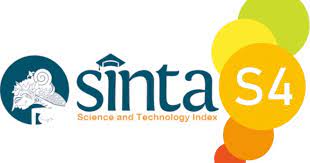Feedback challenges and strategies in EFL classroom: Insights from non-formal education institution
DOI:
https://doi.org/10.22219/englie.v5i1.30295Keywords:
Challenges, EFL Students, Feedback StrategiesAbstract
Feedback has a crucial position in supporting the success of teaching and learning processes in English as Foreign Language (EFL) classroom setting. In addition, research in this essential topic should be conducted continuously. Most research on topic have been done at schools or even universities. Only few studies concentrate in non- formal education institution such as English courses. Therefore, it is reasonable to conduct this study. Employing qualitative research, this study invited eight English teachers at non-formal education institution. The study used interview as the instrument to collect data and thematic content analysis to analyze the data. The findings displayed that the participants faced challenges and having strategies in providing feedback for students. The result revealed that teachers find challenges like inappropriate response from the students and insufficient time to make it happen fully. Then, the strategies implemented to fulfill these challenges are sharing appreciation towards students’ work at the beginning, making a clear follow-up session as well as having a clear information to students, and creating a direct comment to students’ work and also adding some notes. This study will contribute more not only for non-formal education institution but also for formal education in general. Furthermore, other aspects, such as teaching approach as well as the method used may be considered as important to adjust with these findings.
Downloads
References
Austen, L., & Malone, C. (2018). What students’ want in written feedback: praise, clarity and precise individual commentary. Practitioner Research in Higher Education, 11(1), 47-58.
Bartin, T. (2020). Strengthening non-formal education institutions in Indonesia through accelerating the implementation of information technology literacy. Digital Press Social Sciences and Humanities, 6, 00020. http://dx.doi.org/10.29037/digitalpress.46385
Belhiah, H. (2020). English as a global language in Moocco: A qualitative study of students’ motivations for studying English. English Language Teaching In Moroccan Hifgher Education, 33-48. https://link.springer.com/chapter/10.1007/978-981-15-3805-6_3
Berggren, J. (2015). Learning from giving feedback: A study of secondary-level students. ELT journal, 69(1), 58-70. https://doi.org/10.1093/elt/ccu036
Boud, D., & Molloy, E. (2012). What is the Problem with Feedback? In Feedback in higher and professional education (pp. 11–20). Routledge. https://www.taylorfrancis.com/chapters/edit/10.4324/9780203074336-1/problem-feedback-david-boud-elizabeth-molloy
Burnett, P. C. (2002). Teacher praise and feedback and students' perceptions of the classroom environment. Educational Psychology, 22(1), 5-16. https://doi.org/10.1080/01443410120101215
Carless, D., & Boud, D. (2018). The development of student feedback literacy: enabling uptake of feedback. Assessment & Evaluation in Higher Education, 43(8), 1315-1325. https://doi.org/10.1080/02602938.2018.1463354
Chan, C. K. Y., & Luo, J. (2022). Exploring teacher perceptions of different types of ‘feedback practices’ in higher education: Implications for teacher feedback literacy. Assessment & Evaluation in Higher Education, 47(1), 61-76. http://dx.doi.org/10.1080/02602938.2021.1888074
Dekker-Groen, A., Van der Schaaf, M., & Stokking, K. (2015). Teachers' questions and responses during teacher-student feedback dialogues. Scandinavian Journal of Educational Research, 59(2), 231-254. https://sci-hub.hkvisa.net/10.1080/00313831.2014.937359
Devkota, S. P., Giri, D. R., & Bagale, S. (2017). Developing 21st century skills through project-based learning in EFL context: challenges and opportunities. The Online Journal of New Horizons in Education, 7(1). https://doi.org/10.1080/02602938.2018.1463354
Eckstein, G., Coca, K., Lung, Y. S. M., & McMurry, B. L. (2023). Praise in Written Feedback: How L2 Writers Perceive and Value Praise. Reading & Writing Quarterly, 1-17. https://doi.org/10.1080/10573569.2023.2175341
Elashri, I. I. E. A. F. (2013). The Impact of the Direct Teacher Feedback Strategy on the EFL Secondary Stage Students' Writing Performance. Online Submission. https://eric.ed.gov/?id=ED540631
Erta-Majó, A., & Vaquero, E. (2023). Designing a transmedia educational process in non-formal education: Considerations from families, children, adolescents, and practitioners. Contemporary Educational Technology, 15(3). https://doi.org/10.30935/cedtech/13338
Etikan, I., Musa, S. A., & Alkassim, R. S. (2016). Comparison of convenience sampling and purposive sampling. American journal of theoretical and applied statistics, 5(1), 1-4. doi: 10.11648/j.ajtas.20160501.11
Faraz, A., Hassan, M. U., & Pervaiz, M. (2022). Investigating the Online Corrective Feedback to the University Students in Pakistan: A Pandemic Covid-19 Scenario. Annals of Human and Social Sciences, 3(2), 92-101. https://doi.org/10.35484/ahss.2022(3-II)09
Ferguson, P. (2011). Student perceptions of quality feedback in teacher education. Assessment & evaluation in higher education, 36(1), 51-62. https://doi.org/10.1080/02602930903197883
Goodrich, N.H. (2020). English in Iran. World Englishes, 39(3), 482-499. https://doi.org/10.1111/weng.12491
Hakimi, M. (2020). Teacher written feedback in EFL classroom: Abu hayyan al-Tawhidi high school-Kenitra, Morocco-as a case study. International Journal for Innovation Education and Research. https://doi.org/10.31686/ijier.vol8.iss7.2472
Hidayat, M., & Saleh, M. N. I. (2022). Feedback in The Learning Process on Indonesian Master’s Degree Experience Studying Abroad. JTP-Jurnal Teknologi Pendidikan, 24(2), 158-170. https://doi.org/10.21009/jtp.v24i2.25856
Hidayat, M., & Mursyid, A. M. M. (2023). What Does Teacher’s Perception of Feedback in EFL Classroom? Insights From Non-Formal Education Institution. Indo-MathEdu Intellectuals Journal, 4(2), 1440-1447. https://www.indo-intellectual.id/index.php/imeij/article/view/317
Hyland, K., & Hyland, F. (2019). Contexts and issues in feedback on L2 writing. Feedback in second language writing: Contexts and issues, 1-22. https://doi.org/10.1017/9781108635547.003
Ishak, M., Niswaty, R., & Guntur, M. (2020). Competitiveness of public services, non-formal education institutions center of education Indonesia. GNOSI: An Interdisciplinary Journal of Human Theory and Praxis, 3(1), 53-60. http://www.gnosijournal.com/index.php/gnosi/article/view/44
Jácome, L. M. P., Jaimes, C. A. L., & Angulo, L. C. D. (2016). From feedback to follow-up in the third turn of IRF sequences: A challenge to promote genuine interaction in EFL classes. Rastros Rostros, 18(33), 71-81. doi: http://dx.doi.org/10.16925/ra.v18i33.1846
Kang, H. S., & Dykema, J. (2017). Critical discourse analysis of student responses to teacher feedback on student writing. Journal of Response to Writing.
King, N., & Brooks, J. (2021). 14 Thematic analysis in organisational research. The Sage handbook of qualitative business and management research methods, 201.
Kourgiantakis, T., Sewell, K. M., & Bogo, M. (2019). The importance of feedback in preparing social work students for field education. Clinical Social Work Journal, 47, 124-133. https://link.springer.com/article/10.1007/s10615-018-0671-8
Lejonberg, E., Elstad, E., & Christophersen, K. A. (2018). Teaching evaluation: antecedents of teachers’ perceived usefulness of follow-up sessions and perceived stress related to the evaluation process. Teachers and Teaching, 24(3), 281-296.
Liu, Y., Liu, X., & Zhang, Y. (2021). A Pragmatic Study on Teachers' Feedback in EFL Classrooms in China. English language teaching, 14(5), 109-123. https://doi.org/10.5539/elt.v14n5p109
Misiejuk, K., Wasson, B., & Egelandsdal, K. (2021). Using learning analytics to understand student perceptions of peer feedback. Computers in Human Behavior, 117, 106658. https://doi.org/10.1016/j.chb.2020.106658
Mujtaba, S. M., Parkash, R., & Nawaz, M. W. (2020). Do indirect coded corrective feedback and teachers short affective comments improve the writing performance and learners uptake? Reading & Writing Quarterly, 36(1), 34-47. http://dx.doi.org/10.1080/10573569.2019.1616638
Rahayu, E. L. (2020). Identifying EFL Learners’ Uptakes in Response to Corrective Feedback. English Learning Innovation (englie), 1(1), 36-43. https://doi.org/10.22219/englie.v1i1.13164
Rao, P. S. (2019). The role of English as a global language. Research Journal of English, 4(1), 65-79. www.rjoe.org.in
Rassaei, E. (2015). Oral corrective feedback, foreign language anxiety and L2 development. System, 49, 98-109. https://doi.org/10.1016/j.system.2015.01.002
Roothooft, H., & Breeze, R. (2016). A comparison of EFL teachers’ and students’ attitudes to oral corrective feedback. Language Awareness, 25(4), 318-335. https://doi.org/10.1080/09658416.2016.1235580
Rosário, P., Núñez, J. C., Vallejo, G., Cunha, J., Nunes, T., Suárez, N., & Moreira, T. (2015). The effects of teachers' homework follow-up practices on students' EFL performance: a randomized-group design. Frontiers in Psychology, 6, 1528. https://doi.org/10.3389/fpsyg.2015.01528
Salavatizadeh, M., & Tahriri, A. (2020). The effect of blended online automated feedback and teacher feedback on EFL learners’ essay writing ability and perception. Teaching English as a Second Language (Formerly Journal of Teaching Language Skills), 39(3.2), 181-225. https://doi.org/10.22099/jtls.2021.38753.2899
Sari, S. N., & Aminatun, D. (2021). Students’perception on the use of english movies to improve vocabulary mastery. Journal of English Language Teaching and Learning, 2(1), 16-22. https://doi.org/10.33365/jeltl.v2i1.757
Saglamel, H., & Çetinkaya, S. E. (2022). Students' Perceptions towards Technology-Supported Collaborative Peer Feedback. Indonesian Journal of English Language Teaching and Applied Linguistics, 6(2), 189-206. http://dx.doi.org/10.21093
Small, F., & Attree, K. (2016). Undergraduate student responses to feedback: expectations and experiences. Studies in Higher Education, 41(11), 2078–2094. https://doi.org/10.1080/03075079.2015.1007944
Swart, E. K., Nielen, T. M., & Sikkema-de Jong, M. T. (2019). Supporting learning from text: A meta-analysis on the timing and content of effective feedback. Educational Research Review, 28, 100296. https://doi.org/10.1016/j.edurev.2019.100296
Weaver, M. R. (2006). Do students value feedback? Student perceptions of tutors’ written responses. Assessment & Evaluation in Higher Education, 31(3), 379-394. https://doi.org/10.1080/02602930500353061
Widiastuti, I. A. M. S., Astawa, I. N. D., Mantra, I. B. N., & Susanti, P. H. (2021). The Roles of English in the Development of Tourism and Economy in Indonesia. SOSHUM: Jurnal Sosial Dan Humaniora, 11(3), 305-313. https://doi.org/10.31940/soshum.v11i3.305-313
Yingwen, S., & Jian, W. (2016). A study of appreciation resources in teacher feedback in the Chinese college EFL context. Proceeding of CLaSIC, 443-459. https://fass.nus.edu.sg/cls/wp-content/uploads/sites/32/2020/10/yingwen_shen.pdf
Yuan, J., & Kim, C. (2015). Effective feedback design using free technologies. Journal of Educational Computing Research, 52(3), 408–434 https://doi.org/10.1177/0735633115571929
Zacharias, N. T. (2007). Teacher and student attitudes toward teacher feedback. RELC journal, 38(1), 38-52. https://doi.org/10.1177/0033688206076157
Ziman, M., Meyer, J., Plastow, K., Fyfe, G., Fyfe, S., Sanders, K., & Brightwell, R. (2007, January). Student optimism and appreciation of feedback. In Student Engagement. Proceedings of the 16th Annual Teaching and Learning Forum, 30-31.
Downloads
Published
How to Cite
Issue
Section
License
Copyright (c) 2024 Hidayat et al.

This work is licensed under a Creative Commons Attribution-ShareAlike 4.0 International License.
Authors who publish with English Learning Innovation (englie) agree to the following terms:
- For all articles published in English Learning Innovation (englie), copyright is retained by the authors. Authors give permission to the publisher to announce the work with conditions. When the manuscript is accepted for publication, the authors agree to automatic transfer of the publishing right to the publisher.
- Authors retain copyright and grant the journal right of first publication with the work simultaneously licensed under a Creative Commons Attribution-ShareAlike 4.0 International License that allows others to share the work with an acknowledgement of the work's authorship and initial publication in this journal.
- Authors are able to enter into separate, additional contractual arrangements for the non-exclusive distribution of the journal's published version of the work (e.g., post it to an institutional repository or publish it in a book), with an acknowledgment of its initial publication in this journal.
- Authors are permitted and encouraged to post their work online (e.g., in institutional repositories or on their website) prior to and during the submission process, as it can lead to productive exchanges, as well as earlier and greater citation of published work (See The Effect of Open Access).
This work is licensed under a Creative Commons Attribution-ShareAlike 4.0 International License.
















1.png)












